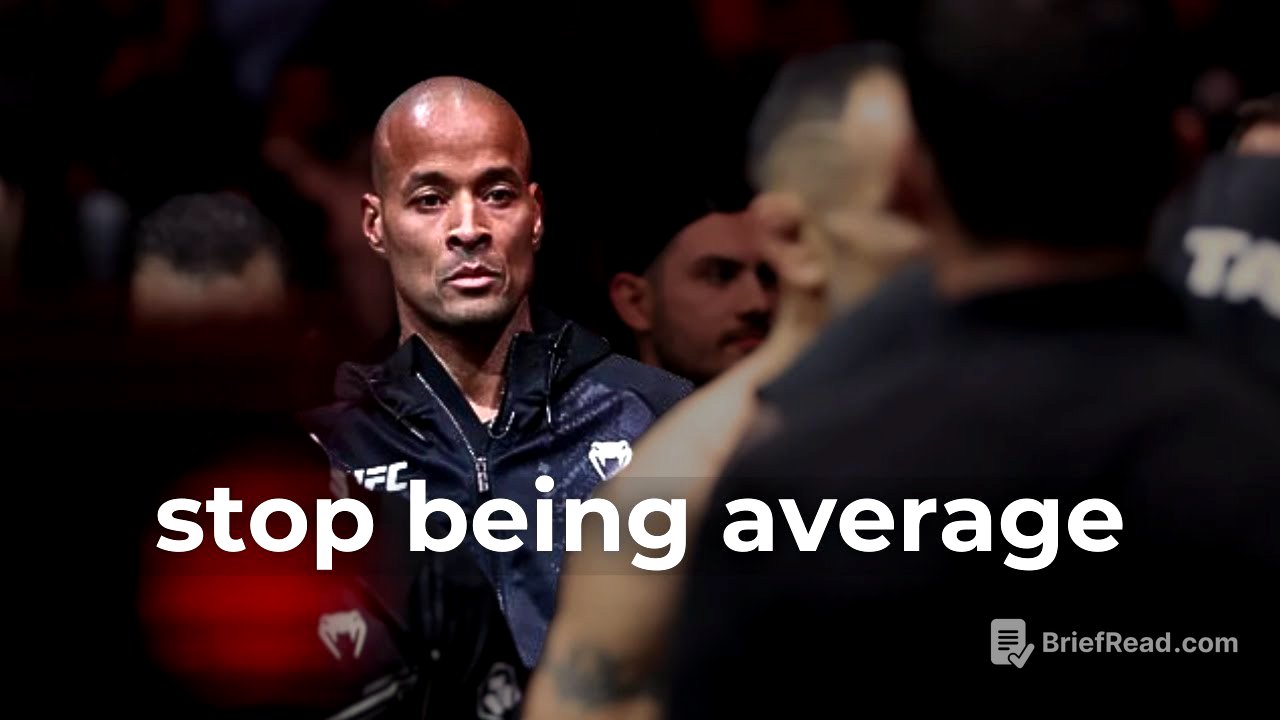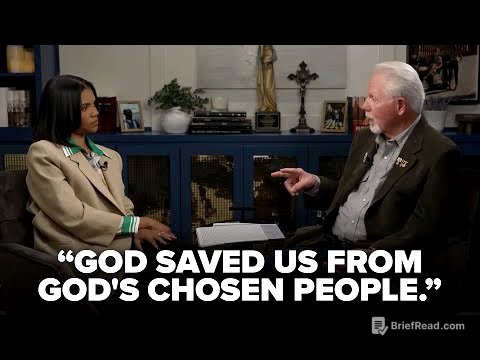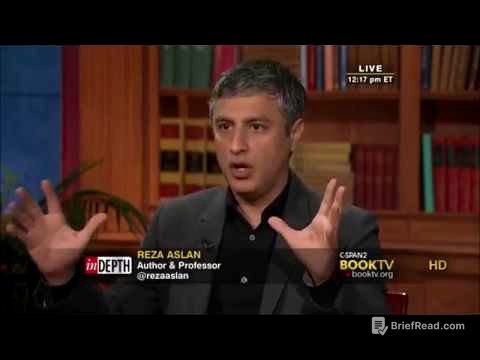TLDR;
David Goggins discusses the importance of mental toughness, self-accountability, and overcoming adversity. He emphasises the need to confront personal weaknesses, embrace discomfort, and reject mediocrity. Goggins shares his personal experiences with bullying, learning disabilities, and self-doubt, highlighting the necessity of taking ownership of one's problems and pushing beyond perceived limits. The core message revolves around building an "indestructible mental toolbox" to handle life's challenges and striving for continuous self-improvement, regardless of external circumstances.
- Developing mental toughness to overcome adversity.
- Practising radical self-honesty and accountability.
- Embracing discomfort and pushing beyond perceived limits.
- Rejecting mediocrity and striving for continuous self-improvement.
- Taking ownership of personal problems and working to fix them.
Developing an Indestructible Mindset [0:02]
David Goggins reflects on his life, marked by bullying, learning disabilities, and a challenging upbringing. He realised that no one was coming to rescue him, so he had to develop an "indestructible mental toolbox". He aspires to be known as one of the toughest people ever, not just physically, but in his ability to overcome any adversity. Goggins clarifies that his physical feats were a means to strengthen his mind, preparing it to handle judgment and challenges.
The Importance of Honest Self-Assessment [1:30]
Goggins criticises the tendency to sugarcoat reality and avoid honest self-assessment. He argues that many people are full of excuses and don't put in the necessary work to achieve their goals. He stresses the importance of pushing oneself beyond perceived limits and not settling for "enough." He advocates for real, honest conversations with oneself, using harsh truths as motivation for improvement.
Embracing Discomfort and Rejecting the Hope Factor [2:23]
Goggins contrasts the modern inclination to be overly kind with the necessity of brutal honesty. He uses personal examples, such as acknowledging his weight gain and reading difficulties, to illustrate the power of direct, unfiltered self-assessment. Drawing from his military experience, he rejects the "hope factor," preferring to embrace discomfort and uncertainty. He wishes for cold water and relentless instructors, finding strength in facing the unknown.
The Lonely Road to Uncommon Achievement [4:15]
Goggins acknowledges that pursuing excellence is a lonely path filled with criticism. He shares his strategy for dealing with haters, using their negativity as fuel for self-improvement. He emphasises the importance of honest self-reflection, identifying personal shortcomings without making excuses. He advocates for surrounding oneself with people who provide constructive criticism rather than empty praise.
The "Can't Hurt Me" Mentality [5:48]
Goggins explains the origin and significance of his book title, "Can't Hurt Me." He wants people to adopt this mantra to strengthen their minds and face any situation with resilience. He recounts using the phrase during BUD/S training, turning false motivation into genuine determination. He reveals that public speaking, despite his past stutter, remains a significant challenge he continuously confronts.
Life's Relentless Nature and the Value of Perseverance [7:22]
Goggins asserts that life is relentless and requires constant perseverance. He encourages listeners to keep fighting, getting up after failures, and never giving in. He highlights that suffering is universal and indiscriminate, affecting everyone regardless of background. He reiterates the loneliness of striving for uncommon achievement and the importance of setting new standards based on the accomplishments of others.
The Accountability Mirror and Owning Your Problems [9:16]
Goggins introduces the concept of the "accountability mirror," emphasising the need to start with oneself. He describes life as carrying a "rucksack" filled with past traumas and insecurities. He stresses that no one is coming to help, and it's crucial to take ownership of one's problems and work to fix them. He acknowledges the unfairness of this reality but insists that dwelling on past grievances will only perpetuate stagnation.
The Great Divide: Who Are You on Bad Days? [10:56]
Goggins poses the question: "Who are you on those days you don't want to do things?" He contrasts the ease of conquering challenges in favourable conditions with the difficulty of persevering through adversity. He argues that the "great divide" lies in the ability to keep grinding even when everything is going wrong. Those who rise to the occasion during tough times are the ones who truly separate themselves from the rest.









